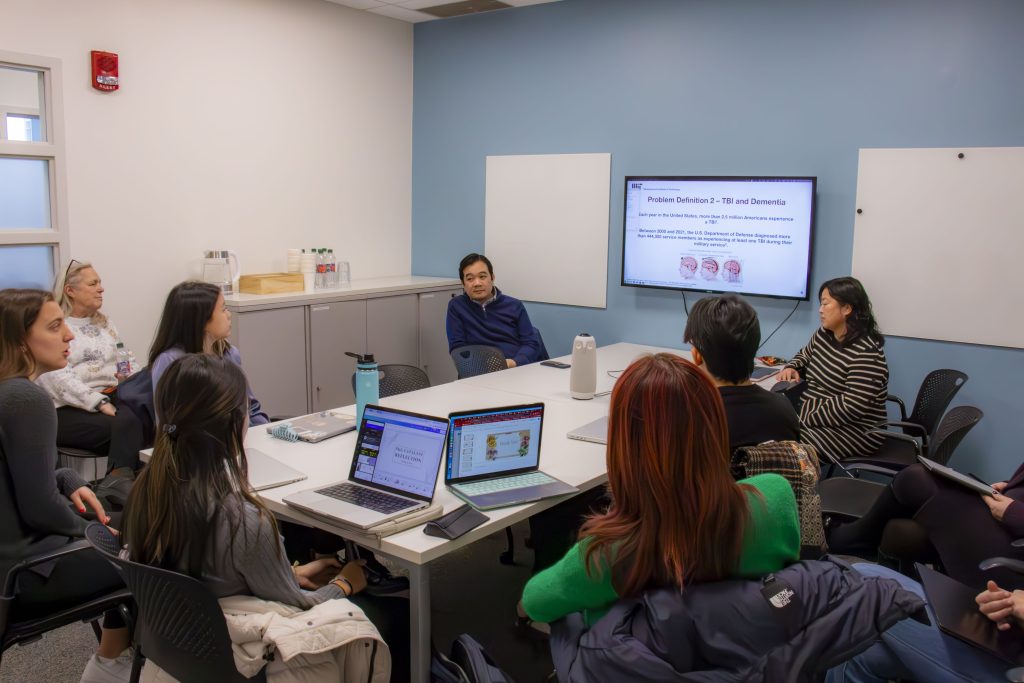Interested in learning from interdisciplinary teams within the healthcare field? Do you want to work furthering research for unmet medical needs?

Catalyst might be the IAP Health host site for you!
Who are they?
The Catalyst experience takes participants on a path from discovery, to insight, to yet deeper discoveries. The process is structured to accelerate and maximize innovation opportunities.
As PKG Scholars in the MIT Catalyst Program, you will depend heavily on substantial interpersonal interactions, often with people whose expertise and backgrounds differ from yours. In addition, the process of developing a compelling, exciting, original, and validated project involves a lot of what can feel like rejection. Ideas you like will be “killed”, things you thought you knew will prove to be mistaken, arguments you make will be called out as unconvincing, etc. Of course, there will also be times when people love your ideas, you will teach others, and your arguments will persuade! Through the shared objective of building a project portfolio that continues into the spring, participants find they learn and grow in myriad ways. But, this whole process works best when there is a high level of trust among participants. We ask that you bear this in mind as you begin your Catalyst journey.
You can learn more about Catalyst and this IAP’s projects by meeting with Freddy Nyuyen, Director of MIT Catalyst. Schedule a 1:1 meeting with Freddy here.
What projects might I work on?
PKG-Catalyst Scholars play an integral role within the MIT Catalyst Program through project-based teams put together during IAP and are made up of PKG-Catalyst Scholars and MIT Catalyst Fellows. Scholars and Fellows self-form teams around various project topics developed and driven by them with guidance of the Faculty of the MIT Catalyst Program. Examples from this past year’s cohort have included Opioid Overdose, Traumatic Brain Injury, Skin Cancer, and Dysphagia. Every January, a new set of clinical problems and unmet needs are identified by the cohort of Scholars and Fellows to dive deeper into during the IAP period.
What do projects look like?
PKG-Catalyst Scholars jointly with the Catalyst Fellows will identify clinical unmet needs and test and validate hypotheses and assumptions around these problems through primary literature review, stakeholder interviews, visiting clinical environments, and engaging with the larger healthcare ecosystem.
What could I expect to learn from this experience?
- How to identify clinical unmet needs or problems
- How to break down the problem to get to the root cause(s) of the problem
- How to develop and hypotheses around the root causes
- How to perform primary literature review, and provide a synthesized summary of that information
- How to perform stakeholder interviews to better understand the problem and pressure test assumptions
- How to constructively challenge the status quo in terms of the current standard of care or current processes for “solving” an existing problem
- How to work collaboratively in multi-disciplinary team (students, healthcare providers, scientists, engineers, business) made up of Scholars, Fellows, Faculty, professionals, and experts
- How to synthesize and present complex materials about clinical problems to different stakeholders and audiences
What skills are they looking for in a strong candidate?
A broad interest in healthcare, a curiosity to better understand why things work the way they do or why things don’t work, and an interest to explore and dissect impactful healthcare problems through the lenses of the patients, caregivers, healthcare providers, scientists, engineers, business people, and payers. Strong work ethics, curiosity, problem-solving, and interests in medicine/healthcare are just some of the skills we are seeking as part of this opportunity.
Students are expected to be in person in the Greater Boston area to maximize their experience with the MIT Catalyst Program. Students will meet regularly during the IAP period in different contexts (the full MIT Catalyst Program with Faculty and Fellows, in project based meetings, and in Scholars specific meetings and sessions). The range of programming is a mixture of didactics, hands-on learning experiences, active engagements with the community, and reflection opportunities.
Note: Applications will close on Friday, October 3rd
